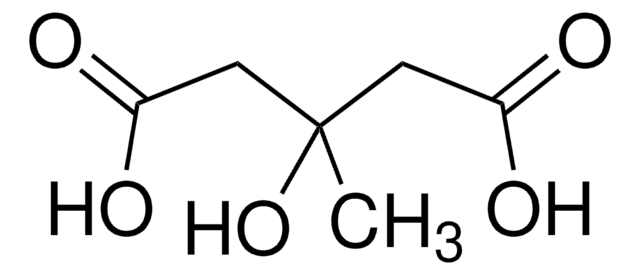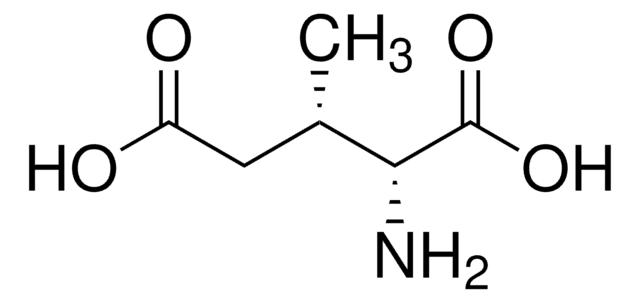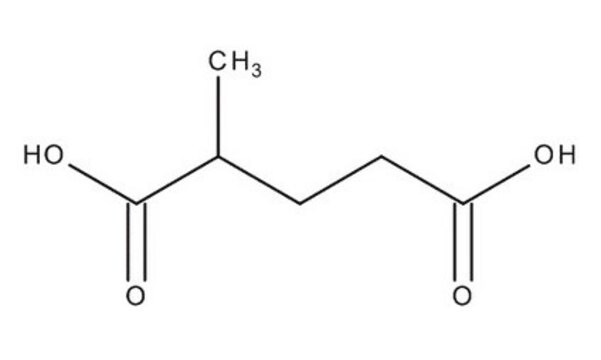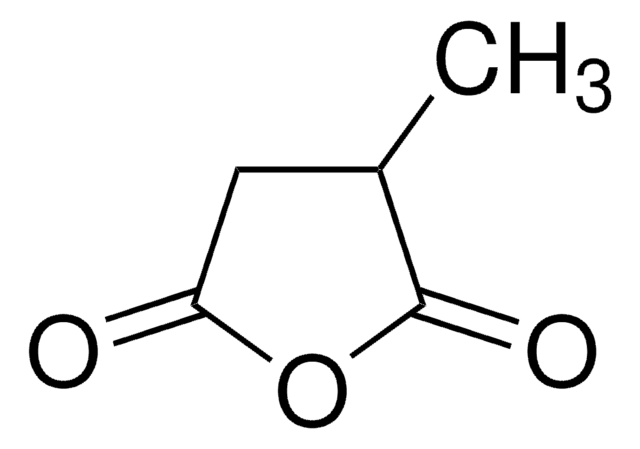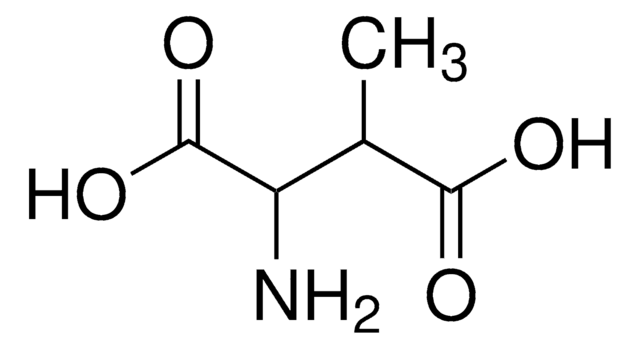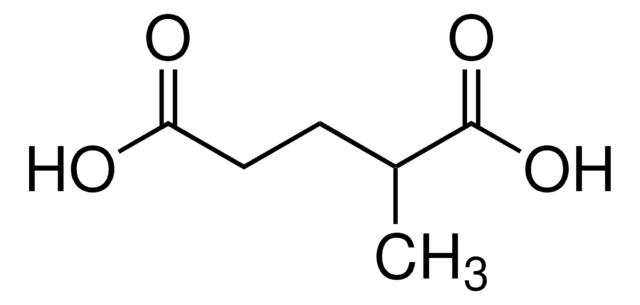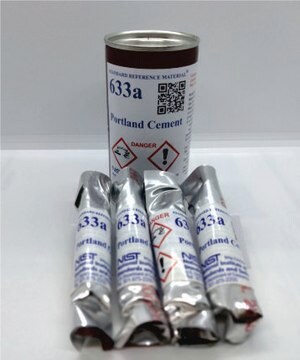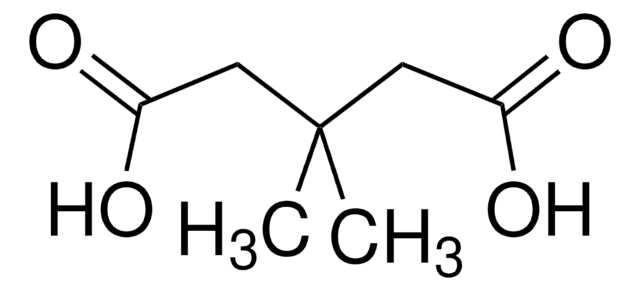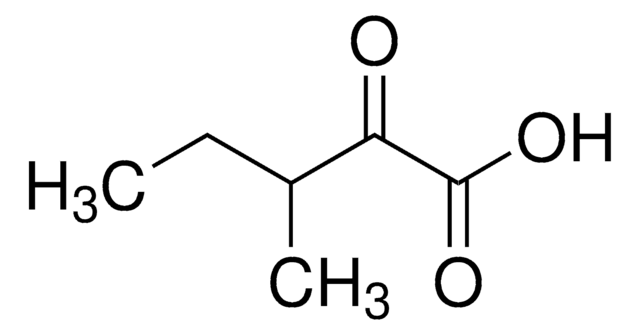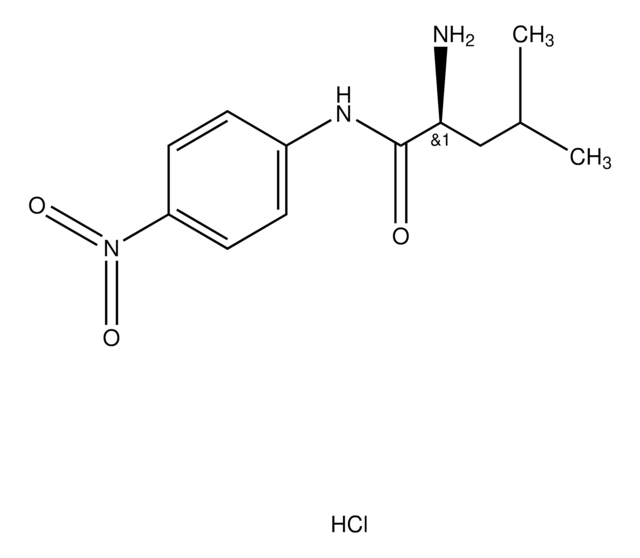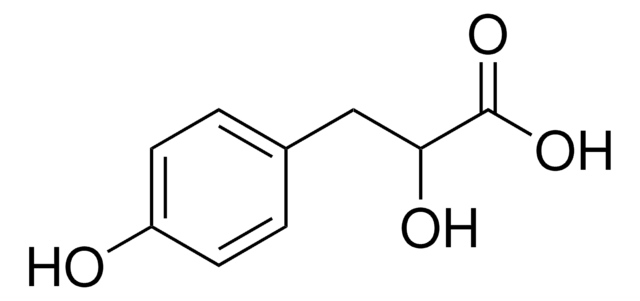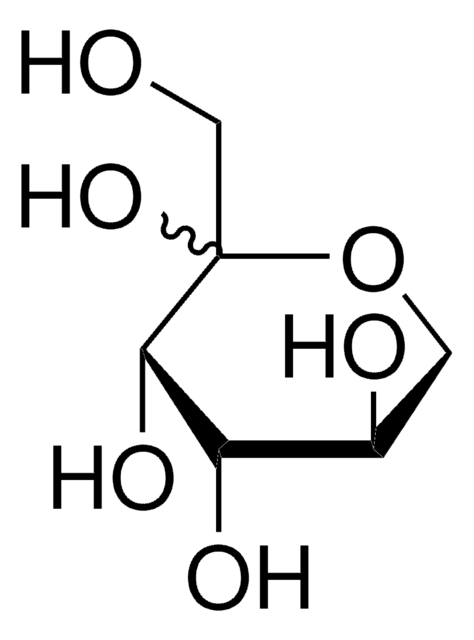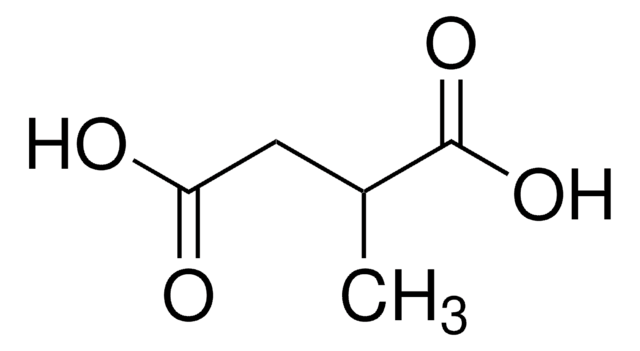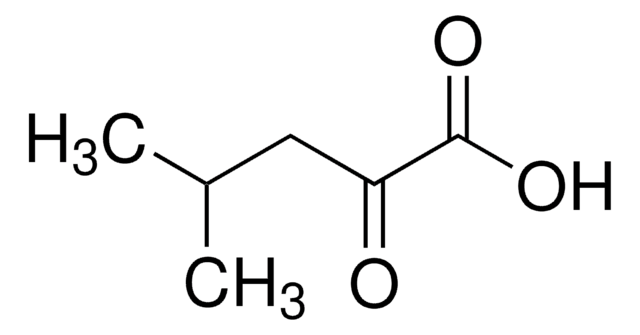M47604
3-Methylglutaric acid
99%
Synonym(s):
β-Methylglutaric acid, 3-Methylpentanedioic acid
Sign Into View Organizational & Contract Pricing
All Photos(1)
About This Item
Linear Formula:
CH3CH(CH2COOH)2
CAS Number:
Molecular Weight:
146.14
Beilstein:
1759502
EC Number:
MDL number:
UNSPSC Code:
12352100
PubChem Substance ID:
NACRES:
NA.22
Recommended Products
Assay
99%
mp
81-86 °C (lit.)
SMILES string
CC(CC(O)=O)CC(O)=O
InChI
1S/C6H10O4/c1-4(2-5(7)8)3-6(9)10/h4H,2-3H2,1H3,(H,7,8)(H,9,10)
InChI key
XJMMNTGIMDZPMU-UHFFFAOYSA-N
Looking for similar products? Visit Product Comparison Guide
Storage Class Code
11 - Combustible Solids
WGK
WGK 3
Flash Point(F)
Not applicable
Flash Point(C)
Not applicable
Personal Protective Equipment
dust mask type N95 (US), Eyeshields, Gloves
Choose from one of the most recent versions:
Already Own This Product?
Find documentation for the products that you have recently purchased in the Document Library.
Customers Also Viewed
M Duran et al.
The Journal of pediatrics, 101(4), 551-554 (1982-10-01)
Two brothers, aged 7 and 5 years, who excreted large amounts of the leucine metabolites 3-methylglutaconic acid, 3-methylglutaric acid, and 3-hydroxyisovaleric acid, are described. The excretion of these metabolites could be enhanced by increasing the leucine intake. Restriction of the
E A Haan et al.
European journal of pediatrics, 146(5), 484-488 (1987-09-01)
Persistent excretion of 3-methylglutaconic acid was found in a 6-month-old infant with multiple minor physical malformations and delayed development. During two episodes of intercurrent viral illness, the patient developed severe metabolic acidosis and excreted large amounts of lactate, 3-hydroxybutyrate and
R I Kelley et al.
The Journal of pediatrics, 119(5), 738-747 (1991-11-01)
Seven boys with an apparently X-linked syndrome of dilated cardiomyopathy, growth retardation, neutropenia, and persistently elevated urinary levels of 3-methylglutaconate, 3-methylglutarate, and 2-ethylhydracrylate were studied. The natural history of the disorder was characterized by severe or lethal cardiac disease and
D Chitayat et al.
Journal of inherited metabolic disease, 15(2), 204-212 (1992-01-01)
The Mendelian disorder known as 3-methylgutaconic aciduria (McKusick 250950) gives evidence of allelic and locus heterogeneity. Type 1 has a mild clinical phenotype and confirmed 3-methylgutaconyl-CoA hydratase deficiency; inheritance is autosomal recessive. Other forms have major clinical manifestations and subdivide
R J Truscott et al.
Clinica chimica acta; international journal of clinical chemistry, 95(1), 11-16 (1979-07-02)
The urine of a child who presented with hyperammonemia was found to contain elevated levels of 3-hydroxy-3-methylglutaric acid, 3-methylglutaconic acid and 3-methylglutaric acid. An increased excretion of these organic acids has been reported previously in a child with 3-hydroxy-3-methylglutaryl-CoA lyase
Our team of scientists has experience in all areas of research including Life Science, Material Science, Chemical Synthesis, Chromatography, Analytical and many others.
Contact Technical Service
